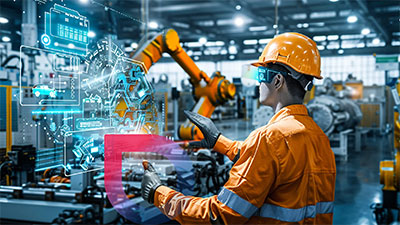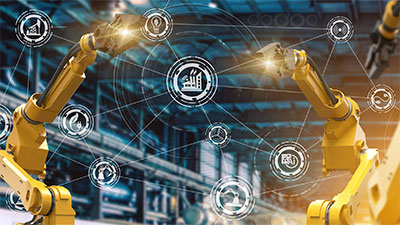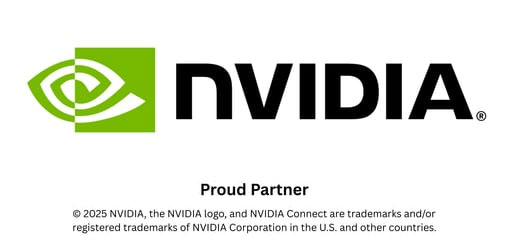Walking through a modern European factory today feels like stepping into a science fiction film. Robotic arms glide with precision, sensors hum quietly and AI-powered dashboards flicker with real-time insights. This is not a distant future – it’s the reality of Manufacturing 4.0.
In this post, I’ll explore how artificial intelligence is reshaping European manufacturing, the challenges we face and the strategies that can help us lead in this new industrial era.
What Is Manufacturing 4.0?
Manufacturing 4.0, also known as Industry 4.0, refers to the integration of digital technologies, like AI, the Internet of Things (IoT) and robotics, into manufacturing processes. This transformation aims to create smart factories that are more efficient, flexible, and responsive to market demands.
The term was first introduced at the Hannover Messe in 2011, highlighting a vision where machines, systems and humans communicate seamlessly to optimise production. JAGGAER

AI Applications in European Manufacturing
AI is at the heart of this transformation, offering numerous applications that enhance productivity and quality:
Predictive Maintenance: AI algorithms analyse data from machinery to predict failures before they occur, reducing downtime and maintenance costs.
Quality Control: Computer vision systems powered by AI detect defects in products with greater accuracy than human inspectors.
Supply Chain Optimisation: AI models forecast demand and optimise inventory levels, ensuring timely delivery and reducing waste.
Process Automation: AI-driven robots and automation systems handle repetitive tasks, freeing human workers for more complex roles.
For instance, a European machinery OEM reported a 70% reduction in assembly process failures after implementing AI-driven quality control systems. MakerVerse
Challenges in AI Adoption

Despite the benefits, European manufacturers face several challenges in adopting AI: MakerVerse
Data Quality and Integration: AI systems require large volumes of high-quality data, but many manufacturers struggle with data silos and inconsistent data formats. arXiv
Workforce Skills: There is a shortage of workers with the necessary skills to develop, implement and manage AI systems.
Regulatory Compliance: The EU’s stringent regulations, including the AI Act, aim to ensure ethical AI use but can also slow down implementation.
Investment Costs: High initial costs for AI technologies can be a barrier, especially for small and medium-sized enterprises (SMEs).
Strategies for Successful AI Integration
To overcome these challenges, manufacturers can adopt several strategies: EuroDev
Collaborative Projects: Initiatives like AI-MATTERS support the deployment of AI and robotics in manufacturing, offering resources and expertise to companies. Tecnalia
Government Incentives: Programs such as Italy’s tax credits for Industry 4.0 investments encourage companies to adopt new technologies. RSM Global
Workforce Development: Investing in training and education ensures that employees have the skills needed to work alongside AI systems.
Pilot Programs: Starting with small-scale AI projects allows companies to test technologies and demonstrate value before full-scale implementation.
The Future of AI in European Manufacturing
Looking ahead, AI is poised to play an even more significant role in European manufacturing:
Digital Twins: Creating virtual replicas of physical systems enables real-time monitoring and optimisation of manufacturing processes. Business Wire
Generative AI: Advanced AI models can design new products and processes, accelerating innovation and reducing time-to-market.
Sustainable Manufacturing: AI helps optimise resource usage, reduce waste, and lower energy consumption, supporting environmental goals.
The EU’s €200 billion InvestAI initiative aims to bolster AI and data innovation, further driving the integration of AI into manufacturing. Automotive Logistics
Final Thought
Manufacturing 4.0 represents a significant shift in how products are made, with AI at its core. While challenges exist, the potential benefits in efficiency, quality and sustainability make AI integration a worthwhile investment for European manufacturers.
By embracing AI and addressing adoption barriers, Europe can strengthen its manufacturing sector and maintain a competitive edge in the global market.
Victor A. Lausas
Chief Executive Officer
Subscribe to North Atlantic’s email newsletter and get your free copy of my eBook,
Artificial Intelligence Made Unlocked. 👉 https://www.northatlantic.fi/contact/
Discover Europe’s best free AI education platform, NORAI Connect, start learning AI or level up your skills with free AI courses and future-proof your AI knowledge. 👉 https://www.norai.fi/





